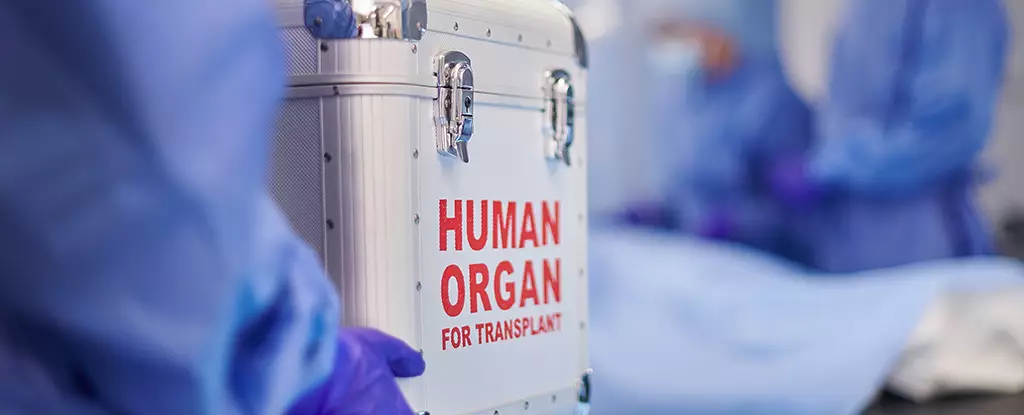The intricacies of organ donation protocols in the United States are under scrutiny after a harrowing incident in Kentucky in which a man was nearly subjected to organ harvesting while still alive. This unsettling case raises critical questions about how hospitals and organ procurement organizations determine and certify death. The implications for trust in the healthcare system are profound and warrant thorough investigation and discussion.
In October 2021, an alarming situation unfolded involving 36-year-old Anthony Thomas ‘TJ’ Hoover II, who had been declared brain dead after a drug overdose. Rushed to Baptist Health Hospital in Richmond, his family believed they were following his wishes regarding organ donation. However, as preparations began for the procedure, TJ exhibited movements that suggested more than mere reflex. Reports from whistleblower Nyckoletta Martin indicate that he displayed signs of life during a cardiac catheterization procedure, leading to chaotic circumstances as medical staff attempted to navigate a morally fraught situation.
Medical professionals are trained to recognize rigorously established criteria to gauge brain death and prepare patients for organ donation if applicable. However, the meticulousness of these evaluations came into question when TJ’s condition took a surprising turn. Witnessing a loved one potentially facing organ removal while still alive is a nightmare. Martin recalls the emotional distress observed in the operating room, where staff members became alarmed as TJ thrashed about and reportedly cried out.
Family Experiences: A Grieving Process Interrupted
TJ’s family, in the midst of grief, found themselves questioning the professionalism and protocols of the hospital staff. His sister, Donna Rhorer, recounted seeing her brother’s eyes open, which staff dismissed as an “involuntary reflex.” This dismissal held significant emotional impact as the family grappled with the brutal reality: their loved one could potentially be alive while being prepared for a surgical procedure aimed at harvesting his organs.
The procedural confusion that ensued exemplifies the human response to a perceived medical catastrophe. Surgeons at the hospital made the critical decision to halt the organ donation process, yet KODA’s involvement in trying to salvage what they thought was a straightforward operation introduces further complications regarding accountability. The conflict of interest remains palpable — the medical staff concerned for their patient’s life versus the organization focused on procuring organs for those in need.
With the realities of this incident resonating within both the medical community and the public, calls for reform are gaining momentum. The federal Health Resources and Services Administration is currently investigating the case, but the mere fact that such a scenario could occur highlights significant concerns regarding the existing protocols for certifying death and proceeding with organ donation.
It’s critical to balance the stringent criteria necessary to ensure a patient’s death with a compassionate understanding of the emotional stakes involved for families and medical professionals. The fear of inadequately determining death could have grave implications, leading to scenarios where living individuals are mistaken for being deceased. Conversely, overly conservative measures risk preventing essential organ transplants for those in desperate need.
This case challenges the public’s faith in organ donation protocols, which are already beleaguered by issues surrounding inequality and inefficiency in the medical system. Over 100,000 patients await transplants in the U.S., while only roughly 46,000 transplants were carried out last year. The disparity between need and supply underscores the urgency for accountability in how organs are procured, and incidents like TJ’s could lead to decreased willingness among the public to donate.
Nyckoletta Martin’s distressing insight that “that’s everybody’s worst nightmare” speaks volumes about the fear that can linger in patients and their families regarding medical procedures that involve life and death decisions. The cascade of errors leading to events like TJ’s must catalyze significant reform to restore public trust.
While organ transplants save countless lives, the protocols governing this life-sustaining practice demand urgent attention. The case of Anthony Thomas inches us toward a pivotal moment for reevaluating the ethical frameworks that guide medical decision-making in organ donation. It is essential that investigation leads to policy refinements ensuring the integrity and safety of patients above all else. Awareness and vigilance from both medical professionals and families are critical to avoid future tragedies, recognizing that behind every organ donor is a human being with untold stories and connections that extend far beyond the operating room.

